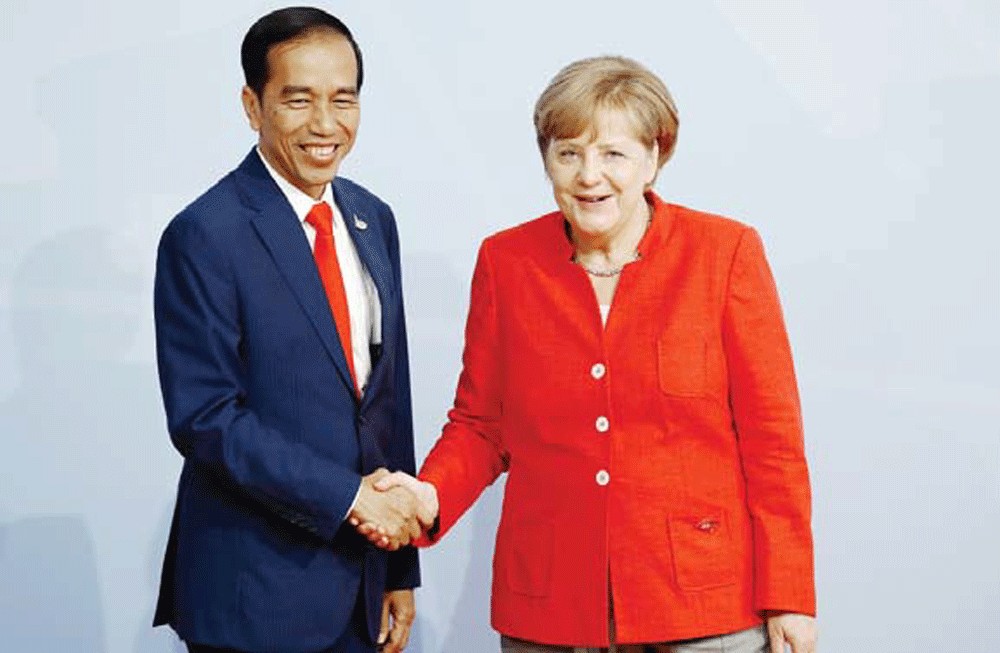Popular Reads
Top Results
Can't find what you're looking for?
View all search resultsPopular Reads
Top Results
Can't find what you're looking for?
View all search resultsAmbassadors call for more healthcare cooperation between Indonesia and Germany
The Indonesian government is looking to intensify its cooperation with Germany in the healthcare sector, particularly in relation to the COVID-19 pandemic.
Change text size
Gift Premium Articles
to Anyone
T
he government is looking to intensify its cooperation with Germany in the healthcare sector, particularly in relation to the COVID-19 pandemic.
Germany has drawn international praise for its handling of the COVID-19 outbreak, while Indonesia has continued to struggle with low testing rates and concerns over data accuracy.
“What we can replicate from German’s experience, in addition to the timely intervention and the discipline of its citizens, is the massive testing and readiness of health infrastructure. Health should become one of our new aspects of cooperation in the future,” Indonesian Ambassador to Germany Arif Havas Oegroseno said during a webinar hosted by Hack the Crisis last week.
German Ambassador to Indonesia Peter Schoff, who was also present at the webinar, said Germany had developed testing materials “at the speed of light” and that it was able to conduct around 3.8 million tests, accounting for nearly 5 percent of Germany’s population.
“Our lives and development in the community depend on good infrastructure to monitor the life of the virus continuously. That’s why testing is an essential tool in this interim period until a vaccine is found,” Schoff said.
The current hospital occupancy in Germany is 28 to 30 percent, a relatively low figure in the pandemic.
Arif said Germany had tested around 200 people in a clinical trial for the COVID-19 vaccine on April 23 and that the country could possibly have a vaccine by the end of the year.
“We also have one Indonesian from Airlangga University who is working in Germany on this particular vaccine,” he said.
Read also: Indonesia steers clear of COVID-19 resolution ‘politicization’
He went on to say that the crisis had demonstrated the need for Indonesian students to expand their horizons of studying in Germany.
“Typically, Indonesian students in Germany study aeronautics, engineering and architecture. I want to expand [the field of study] to medicine and medical technology,” Arif said. “We plan to have an online discussion with the Education and Culture Ministry on this particular aspect.”
Arif also stated the importance of diversification of investment, including investment in the health industry, for future strategic economic relations between Germany and Indonesia.
“The aircraft industry, specifically built by former president BJ Habibie, is one of the cornerstones in our economic strategy [with Germany]. But it’s time for health sector cooperation to become more visible,” he said.










